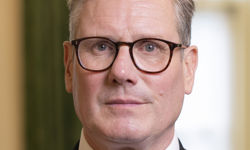
September 28th was World News Day, an annual event highlighting the important work done by journalists around the world. In support of the day, a number of prominent journalists wrote inspiring pieces for the event’s website. Here are some snippets that stood out for me:
- Kathy English, chair, Canadian Journalism Foundation: “In a world in which we have increasingly witnessed fiction become fact and misinformation turn mainstream, choosing truth has perhaps never been more important — or more difficult. For the public, this means the need to distinguish between real news and rumours and falsehoods masquerading as fact, a challenge ever more difficult in this era of AI-generated digital content and “bad actors” intent on sowing public discord with malicious disinformation. For journalists, it means doubling down on our core principle to serve the public with truth grounded in thoroughly verified fact.”
- Fatemah Farag, founder and director of Welad ElBalad Media, Egypt: “We have lived first-hand the dangers posed to democracy by losing independent — particularly local — media. We are now confident in the knowledge that the survival of a diverse, proficient media sector is an essential cornerstone in that pursuit of humanity and freedom. We can have no more doubts with regards to the threat monopolies of big tech companies pose to our profession, and can think clearly about the value journalism brings to society and where we need to re-trench and set up boundaries.”
- Marcelo Rech, president, Brazilian Newspaper Association: “The press is not the solution to all the dilemmas of our times, but try to imagine a world without it. Who would debug between facts and rumours? How could you trust something or some institution if there was no certificate of credibility conferred by serious and independent journalistic coverage?”
- David Walmsley, founder of World News Day, editor-in-chief of The Globe and Mail, Canada: “Too often, he or she who shouts loudest on social media seems to be the newsmaker of the day, overshadowing the professional reporters and editors trained and determined to stand behind everything they publish. Responsible journalism is a tough business when done properly. It necessarily confronts the easy, repetitive, and instant swirl of polemicists and propagandists determined to derail life to fit agendas that are often based on uncertainty and exclusion.”
- Branko Brkic, editor-in-chief, Daily Maverick; creator of Choose Truth Campaign, South Africa and Maria Ressa, Nobel Peace Prize Laureate; CEO of Rappler.com, The Philippines: “Autocratic regimes and aspiring dictators around the world have thrown a gauntlet to freedoms across borders, races and religions. Modern conflicts span the entire globe and are fought in an information expanse that is overwhelming in its reach and power. New technologies, and the platforms they enable, are battlefields on which our future is being decided — often without our permission and against our will. In this maelstrom, it is journalism — fact-based, evidence-based credible news media — that has a lifelong duty to defend the self-evident values our civilization was built on.”
- Carlos Chamorro, director of Confidencial.digital (Nicaraguan journalist, publishing in exile): “Independent journalism from exile is a mirror of the dark clouds that threaten the press in Latin America, and it is also an example of the resilience of good journalism. Where the rule of law has collapsed, and where civil society is also under siege or on the verge of extinction, the only defence of the independent press lies in its own credibility... The challenges to continue doing journalism in exile are monumental. The most urgent is to provide security to journalists and collaborators, who are at risk, and to the news sources to communicate through secure channels. The most complex is to achieve financial sustainability of the newsrooms in exile.”
(Finally, a quick reminder: our next webinar (‘7 top tips to optimise circulation profitability’) is this coming Tuesday (the 15th), presented by Warners Group Publications’ Keiron Jefferies. Click here for more information and to register.)
You can catch James Evelegh’s regular column in the InPubWeekly newsletter, which you can register to receive here.












